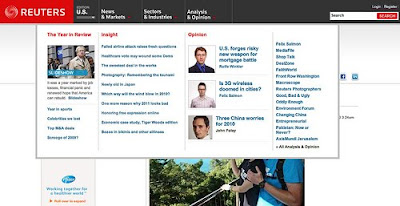 In a recent Beginning Newswriting and Reporting class discussion, our professor urged the class to remain faithful Twitter users, as familiarity with the program will be a necessary skill for those of us entering a journalism/communication field. Then, searching for a blog topic I came across an article on MediaShift, written by media consultant Ian Capstick. This article, entitled "PR Pros Use Twitter to Reinvigorate Brands, Engage in Conversation," offered excellent advice on using Twitter and social media that greatly added to my understanding of the class discussion.
In a recent Beginning Newswriting and Reporting class discussion, our professor urged the class to remain faithful Twitter users, as familiarity with the program will be a necessary skill for those of us entering a journalism/communication field. Then, searching for a blog topic I came across an article on MediaShift, written by media consultant Ian Capstick. This article, entitled "PR Pros Use Twitter to Reinvigorate Brands, Engage in Conversation," offered excellent advice on using Twitter and social media that greatly added to my understanding of the class discussion.
For starters, Twitter offers a new platform for businesses to communicate with their audiences. The article focused mainly on the ways in which the hospitality industry uses the tool specifically, Fairmount Hotels and Resorts. The company, which operates hotels and resorts across the globe started using Twitter to communicate deals and savings to interested audiences, with each individual property maintaining its own account. Since using Twitter, the company has seen higher occupancy rates after posting "online only discounts."
"I really found the genuine ability to connect with people valuable," said Brian Simpson, Fairmount's director of social hospitality.
It has been shown that Twitter has provided an excellent platform for reaching audiences for some companies, but has failed to do so for others. According to Maggie Fox, CEO of the
Social Media Group, who has acted as Ford's social media consultant, tweeting consistently remains the most important and crucial aspect of using Twitter as a profitable business tool. Under this model, the number of tweets a company offers a day does not play as large a role, as long as tweets are coming consistently. We have discussed this in class and it seems only common sense that professionals would offer this advice.
However, for some companies, even consistent tweeting has not worked. In this case, Twitter simply may not be a viable communication platform. Another PR professional mentioned in the article, Steve Rubel, advises that the most important aspect for companies interested in utilizing Twitter or social media is analyzing the audience to understand what platform will deliver the message best. "Too many people start with the tools first. Thats like buying paint before you have a floor plan," said Rubel.
I strongly agree with Rubel on this point, as I have seen numerous student organizations on campus set up Twitter accounts, despite the fact that a majority of Simpson students do not utilize the platform. While I certainly am not criticizing student groups for using Twitter, in fact, I encourage it, I question whether or not it truly works as a communication tool with students at this point in time. Despite this, I hope to see students continually develop their use of Twitter and encourage anyone interested in further information to read this article and research further.
Read more...
 We use blogs every day to find sources, story ideas and general news, but is all of this information accurate?
We use blogs every day to find sources, story ideas and general news, but is all of this information accurate?














 Matt Lauer
Matt Lauer
















 Recently a trainer,
Recently a trainer, 




